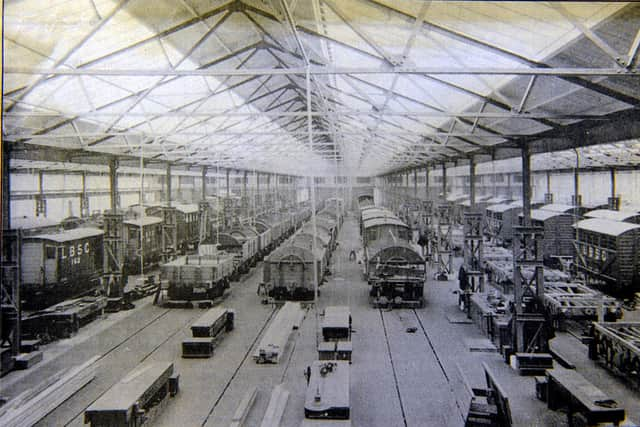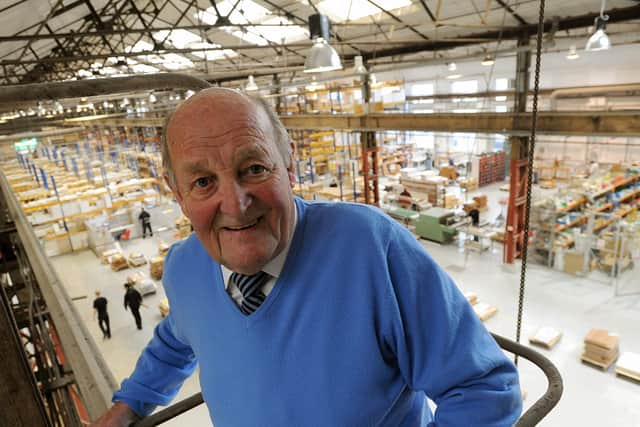Lancing Business Park: Learn the history of the second largest business area in West Sussex, formerly Lancing Carriage Works
and live on Freeview channel 276
Land and buildings were sold off in packets for industrial development and the Churchill Industrial Estate was created. As the estate was developed, it was rebranded Lancing Business Park in 2004, after a period of successful work led by Adur District Council to build a community between residents and the businesses based there.
Now, the non profit making enterprise is the second largest business area in West Sussex, with more than 250 businesses and 3,000 employees based there. But what was it like when it housed the railway works?
Advertisement
Hide AdAdvertisement
Hide AdAn insight was given 13 years ago when the BBC made Down the Line, a documentary showing how Dr Beeching’s reshaping of the railways impacted on lives in the south. In November 2008, presenter Joe Crowley made a stop at the former Lancing Carriage Works and met former worker Bernie Carter.


Bernie worked as a coach finisher from 1950 to 1962, so he was there when the closure of the works was announced on Wednesday, September 19, 1962. There were 1,683 people employed there at the time, around 800 of them living in Worthing, Lancing, Shoreham and Sompting.
According to that week’s edition of the Worthing Herald, the workforce were ‘shocked and dumbfounded’ by the news and Lieutenant Colonel P.M. Bulwer, Liberal candidate for Shoreham and Arundel, told the paper: “I am shocked by the news, as all people in Lancing and district must be. Dr Beeching’s policy is totally wrong.”
Bernie, a grandfather of nine, told the Herald he remembered the period well. “It was absolutely devastating,” he told the Herald at the time. “In my situation I got out as soon as it was announced – I’d just taken out my first mortgage for £2,300 which was a lot of money in those days.”


Advertisement
Hide AdAdvertisement
Hide AdBernie managed to secure a job working nights at another factory in Lancing, but others were not so lucky. He said 1963 was a terrible year, with people queuing outside the labour exchange and loads of people being laid off. The only saving grace was when Dennis & Robinson, now Manhattan Furniture, took over the main carriage building in Bleinheim Road and started taking people on. “There were plenty of skilled workers who needed jobs,” pointed out Bernie.
Tony Hodge, who worked for Dennis and Robinson in Portslade before the move to Lancing, told the Herald: “Part of the arrangement for us moving in here back in 1965 was that we would employ a number of the existing railway workers at the time.” A lot of them were skilled coach workers and, in fact, the company still had one or two of working there when the documentary was made.
Iain Flitcroft, managing director of Manhattan Furniture, told the Herald a lot of people moved straight over to the factory because a lot of the skills needed were similar. The carriage works finally closed in 1965.
The BBC got in contact with Bernie after finding his son’s website on family history, which included an account of how Bernie and his father had both been employed at the carriage works. On the programme, Bernie said: “It was a massive blow to the community; all the shops, everything in Lancing. Morale was terrible after the announcement. I know the apprentices used to go to technical school and it was announced to them while they were at lessons and that was it, they didn’t do any more lessons.”
You may be interested to learn how an historic Shoreham boat that won the Fastnet Race is being saved from destruction. For the full article, CLICK HERE
